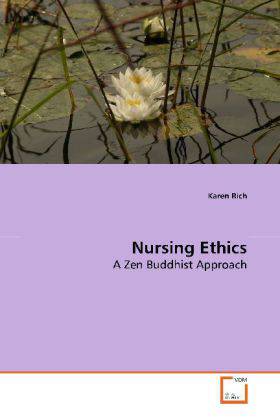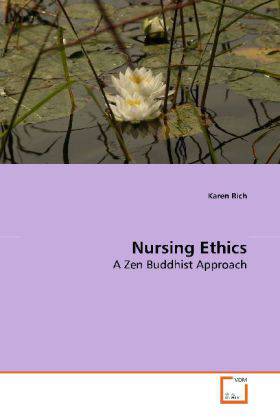
- Afhalen na 1 uur in een winkel met voorraad
- Gratis thuislevering in België vanaf € 30
- Ruim aanbod met 7 miljoen producten
- Afhalen na 1 uur in een winkel met voorraad
- Gratis thuislevering in België vanaf € 30
- Ruim aanbod met 7 miljoen producten
Zoeken
Omschrijving
Ethics in nursing is grounded in relationships and
in the day-to-day practices of nurses confronting
the suffering and enhancing the well-being of people
across the life span. In spite of a continuing long,
rich history of nurses caring for people in both a
physical and emotional sense, many people claim that
the nursing profession today is in a state of
unsatisfactoriness. By using the method of
philosophical inquiry and analysis, Dr. Rich
explored whether or not Zen Buddhism, specifically
engaged Buddhism based on the tradition of Zen monk
Thich Nhat Hanh, has a value for nursing ethics. Dr.
Rich argues that the Zen tools of interbeing,
nonself, the Four Noble Truths, the Four
Immeasurable Minds, and a model of the Buddhist
Sangha can be used by nurses to guide them in
deciding what type of nurses they want to be and to
advance the ethical nature of nurses'' relationships
with their patients and with other nurses. She
proposes that nurses can experience joy in knowing
that nursing, when viewed in terms of its
enlightened nature, already has the characteristics
that nurses aspire to develop.
in the day-to-day practices of nurses confronting
the suffering and enhancing the well-being of people
across the life span. In spite of a continuing long,
rich history of nurses caring for people in both a
physical and emotional sense, many people claim that
the nursing profession today is in a state of
unsatisfactoriness. By using the method of
philosophical inquiry and analysis, Dr. Rich
explored whether or not Zen Buddhism, specifically
engaged Buddhism based on the tradition of Zen monk
Thich Nhat Hanh, has a value for nursing ethics. Dr.
Rich argues that the Zen tools of interbeing,
nonself, the Four Noble Truths, the Four
Immeasurable Minds, and a model of the Buddhist
Sangha can be used by nurses to guide them in
deciding what type of nurses they want to be and to
advance the ethical nature of nurses'' relationships
with their patients and with other nurses. She
proposes that nurses can experience joy in knowing
that nursing, when viewed in terms of its
enlightened nature, already has the characteristics
that nurses aspire to develop.
Specificaties
Betrokkenen
- Auteur(s):
- Uitgeverij:
Inhoud
- Aantal bladzijden:
- 188
- Taal:
- Engels
Eigenschappen
- Productcode (EAN):
- 9783639127263
- Uitvoering:
- Paperback
- Afmetingen:
- 152 mm x 223 mm
- Gewicht:
- 266 g

Alleen bij Standaard Boekhandel
+ 134 punten op je klantenkaart van Standaard Boekhandel
Beoordelingen
We publiceren alleen reviews die voldoen aan de voorwaarden voor reviews. Bekijk onze voorwaarden voor reviews.








